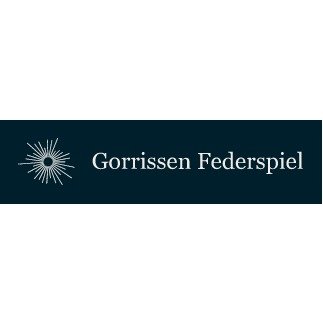Best Commercial Real Estate Lawyers in Denmark
Share your needs with us, get contacted by law firms.
Free. Takes 2 min.
Free Guide to Hiring a Real Estate Lawyer
Or refine your search by selecting a city:
List of the best lawyers in Denmark
About Commercial Real Estate Law in Denmark
Commercial real estate law in Denmark encompasses the rules and regulations governing the purchase, sale, leasing, and use of commercial properties. This field of law is critical for businesses, investors, and developers operating within Denmark's real estate market. The legal framework ensures that transactions are conducted smoothly and that the rights and obligations of all parties are upheld. Given Denmark’s stable economy and transparent legal system, its commercial real estate market is attractive for both local and international investors.
Why You May Need a Lawyer
There are several situations where you may require legal assistance regarding commercial real estate in Denmark:
- Property Transactions: Buying or selling property requires comprehensive understanding of contracts and regulatory compliance.
- Leasing Agreements: Negotiating lease terms or resolving disputes with landlords or tenants.
- Development Projects: Navigating zoning laws and building codes during the planning and construction phases.
- Dispute Resolution: Addressing conflicts over property boundaries, contract breaches, or tenant rights.
- Due Diligence: Conducting thorough investigations before acquisitions to mitigate legal and financial risks.
Local Laws Overview
Key aspects of local laws relevant to commercial real estate in Denmark include:
- Property Law: Governed by the Danish Property Act, covering ownership rights, transfers, and registration requirements.
- Tenancy Regulations: Governed by the Danish Rent Act, which outlines tenant and landlord rights and obligations.
- Planning and Zoning Laws: Administered by municipalities, dictating land use, building restrictions, and development approvals.
- Environmental Regulations: Compliance with environmental impact assessments and sustainability standards is crucial.
- Taxation: Understanding property taxes, including land tax (grundskyld) and income from real estate taxation.
Frequently Asked Questions
1. What is the process of buying commercial property in Denmark?
The process involves finding a suitable property, conducting due diligence, negotiating the purchase agreement, and registering the ownership with the Land Registration Court.
2. Are there restrictions on foreign ownership of commercial property?
Denmark generally allows foreign ownership of commercial property, but certain conditions and approvals may be required depending on the property's location and type.
3. How are commercial leases structured in Denmark?
Commercial leases can vary but typically include terms concerning rent, duration, renewal options, and maintenance responsibilities.
4. What taxes are associated with commercial real estate transactions?
Taxes can include property tax, capital gains tax, and VAT, depending on the nature of the transaction and property use.
5. What legal protections do tenants have in Denmark?
The Danish Rent Act provides protections including rights to notice periods, rent regulation, and dispute resolution mechanisms.
6. Can I change the use of a commercial property?
Change of use requires municipal approval and must comply with zoning laws and building regulations.
7. What are the zoning requirements for commercial properties?
Zoning laws dictate permissible uses and are enforced by local municipalities through zoning plans.
8. How do I resolve a commercial real estate dispute?
Disputes can be resolved through negotiation, mediation, arbitration, or court proceedings as per Danish legal practices.
9. What is due diligence and why is it important?
Due diligence involves reviewing legal, financial, and physical aspects of a property to identify risks before a transaction is finalized.
10. How long does it typically take to close a commercial real estate deal?
Closing times can vary based on the property's complexity and transaction type, ranging from a few weeks to several months.
Additional Resources
For further assistance, consider the following resources:
- The Danish Business Authority for business regulations
- The Danish Property Federation for industry insights
- Local municipal offices for zoning and land use regulations
- Consulting with the Danish Bar Association for legal referrals
Next Steps
If you require legal assistance in commercial real estate, consider the following steps:
- Identify specific legal needs related to your commercial real estate concerns.
- Research and consult with a licensed Danish real estate lawyer specializing in commercial property.
- Gather all necessary documentation pertaining to the property or transaction in question.
- Engage with a lawyer to discuss your situation, outline goals, and devise a strategic legal plan.
- Continue to stay informed about any changes in local regulations or market conditions that may affect your interests.
Lawzana helps you find the best lawyers and law firms in Denmark through a curated and pre-screened list of qualified legal professionals. Our platform offers rankings and detailed profiles of attorneys and law firms, allowing you to compare based on practice areas, including Commercial Real Estate, experience, and client feedback.
Each profile includes a description of the firm's areas of practice, client reviews, team members and partners, year of establishment, spoken languages, office locations, contact information, social media presence, and any published articles or resources. Most firms on our platform speak English and are experienced in both local and international legal matters.
Get a quote from top-rated law firms in Denmark — quickly, securely, and without unnecessary hassle.
Disclaimer:
The information provided on this page is for general informational purposes only and does not constitute legal advice. While we strive to ensure the accuracy and relevance of the content, legal information may change over time, and interpretations of the law can vary. You should always consult with a qualified legal professional for advice specific to your situation.
We disclaim all liability for actions taken or not taken based on the content of this page. If you believe any information is incorrect or outdated, please contact us, and we will review and update it where appropriate.
Browse commercial real estate law firms by city in Denmark
Refine your search by selecting a city.
















